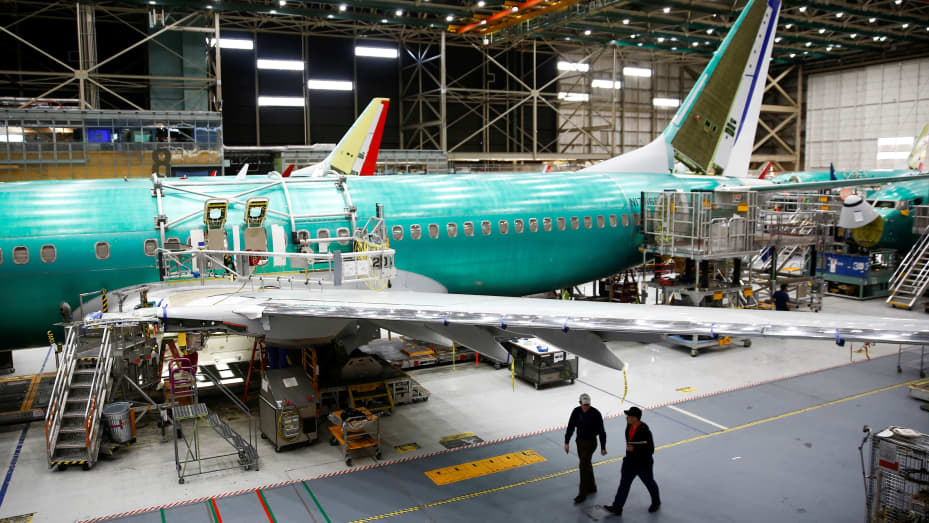FAA wants to assess ‘multiple’ safety improvements at Boeing over the next 3 years

Boeing employees will still be allowed to perform some safety analysis on the company’s aircraft, but for three more years instead of the five-year extension the company requested, federal regulators have determined.
Federal Aviation Administration officials indicated Tuesday that the agency’s decision on the safety-related work was designed to keep a closer eye on Boeing BA, -0.63%.
Under rules in place for more than a decade, employees of aircraft manufacturing companies can be deputized to do certain tasks for the FAA. That practice came under more scrutiny after two deadly crashes involving Boeing 737 Max jets and allegations that Boeing employees misled regulators about a key flight system on the planes.
Boeing’s ability to do that work for the FAA was due to expire Tuesday May 31.
In a letter to Boeing, an FAA safety official said a three-year renewal was “more appropriate” than a five-year extension.
“There are multiple in work improvements that the FAA would like to assess within the Boeing organization over the next three years,” Ian Won, acting manager of the FAA office that oversees Boeing, told the company.
The list of items that the FAA wants Boeing to complete in the next three years includes ensuring that employees who help the FAA are protected from pressure by company managers, and making sure that Boeing quickly corrects any problems it finds.
Boeing issued a statement, which in its entirety read, “As always, we are committed to working transparently with the FAA through their detailed and rigorous oversight processes.”
The FAA also said its inspectors — and not Boeing employees — will continue to be responsible for issuing final safety certificates for all new Boeing 737 Max and 787 jets rolling off the company assembly lines. That was a step taken in November 2019, during a 19-month grounding of the Max following crashes in 2018 and 2019 that killed 346 people.
Deliveries of the 787, which Boeing calls the Dreamliner, have been halted most of the past two years because of a series of production problems. That is depriving Boeing of cash, because buyers typically pay a large portion of the purchase price for jets on delivery. marketwatch.com
